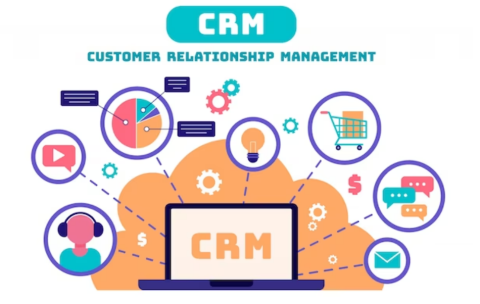SAS Analytics Training – Mastering Analytics with SAS
SAS Analytics Training – Mastering Analytics with SAS” is a …
What you'll learn
Week 1: Introduction to SAS and Basic Data Handling (4 Hours)
Session 1 (2 Hours): Introduction to SAS
Overview of SAS Software: History and Industry Applications
Navigating the SAS Environment (SAS Studio, SAS Enterprise Guide)
Basic Syntax and Commands in SAS
Session 2 (2 Hours): Data Management Basics in SAS
Importing and Exporting Data in SAS
Data Manipulation Techniques (SORT, SET, MERGE)
Introduction to SAS Libraries and Data Sets
Week 2: Data Analysis and Reporting in SAS (6 Hours)
Session 3 (2 Hours): Descriptive Statistics and Data Summarization
Generating Descriptive Statistics in SAS (MEANS, FREQ, SUMMARY)
Data Summarization Techniques
Creating Basic Reports and Outputs
Session 4 (2 Hours): Data Visualization in SAS
Introduction to SAS Graphical Procedures (SGPLOT, SGPANEL)
Creating Charts and Graphs for Data Presentation
Customizing Visual Outputs in SAS
Session 5 (2 Hours): Advanced Data Analysis Techniques
Conducting Correlation and Regression Analysis
ANOVA and Other Statistical Tests
Introduction to Predictive Modeling in SAS
Week 3: Advanced SAS Programming and Analytics (6 Hours)
Session 6 (2 Hours): Advanced Data Manipulation
Advanced SAS Functions and Procedures
Data Cleaning and Preprocessing Techniques
Working with Dates and Times in SAS
Session 7 (2 Hours): SQL Programming in SAS
Introduction to PROC SQL for Data Querying
Combining SAS Datasets with SQL Joins
Advanced SQL Queries in SAS
Session 8 (2 Hours): Macro Programming in SAS
Basics of SAS Macro Language
Automating Tasks with Macros
Building and Using Macro Variables
Week 4: Business Applications and Capstone Project (4 Hours)
Session 9 (2 Hours): SAS in Business Contexts
Case Studies: SAS Applications in Finance, Marketing, and Operations
Discussing Ethical Implications of Data Analytics
Integrating SAS Analysis into Business Decision-Making
Session 10 (2 Hours): Capstone Project and Course Wrap-Up
Applying SAS Skills to a Real-World Business Problem
Presenting Capstone Project Findings
Course Summary and Recommendations for Continued Learning
Supply Chain Analytics – Unlocking Efficiency with Supply Chain Analytics
Supply Chain Analytics – Unlocking Efficiency with Supply Chain Analytics …
What you'll learn
Week 1: Introduction to Supply Chain Management and Analytics (4 Hours)
Session 1 (2 Hours): Fundamentals of Supply Chain Management
Overview of Supply Chain Concepts and Components
Role of Analytics in Supply Chain Management
Introduction to Supply Chain Models
Session 2 (2 Hours): Introduction to Supply Chain Analytics Tools and Techniques
Overview of Analytical Tools Used in Supply Chain (e.g., Excel, R, Python)
Basic Data Analysis Techniques for Supply Chain Data
Case Studies Highlighting the Importance of Analytics in Supply Chain
Week 2: Data Management and Descriptive Analytics (6 Hours)
Session 3 (2 Hours): Data Management in Supply Chains
Data Collection and Management Strategies in Supply Chains
Data Quality and Governance in Supply Chain Analytics
Introduction to Data Warehousing and Data Lakes
Session 4 (2 Hours): Descriptive Analytics in Supply Chain
Using Descriptive Analytics to Understand Historical Performance
Key Performance Indicators (KPIs) in Supply Chain Management
Visualization Techniques for Supply Chain Data
Session 5 (2 Hours): Practical Exercise on Descriptive Analytics
Hands-on Exercise with a Supply Chain Dataset
Creating Dashboards and Reports for Supply Chain Performance
Week 3: Predictive Analytics and Optimization Techniques (6 Hours)
Session 6 (2 Hours): Introduction to Predictive Analytics in Supply Chain
Overview of Predictive Modeling Techniques
Forecasting Demand and Inventory Requirements
Predictive Maintenance in Supply Chain Operations
Session 7 (2 Hours): Supply Chain Optimization Techniques
Linear Programming and Network Optimization Models
Optimization of Logistics and Distribution Networks
Case Study on Supply Chain Optimization
Session 8 (2 Hours): Advanced Topics in Predictive Analytics
Machine Learning Applications in Supply Chain
Scenario Planning and Risk Analysis in Supply Chain
Real-time Analytics and IoT in Supply Chain Management
Week 4: Strategic Applications and Capstone Project (4 Hours)
Session 9 (2 Hours): Integrating Analytics into Supply Chain Strategy
Building Data-Driven Supply Chain Strategies
Sustainability and Ethics in Supply Chain Analytics
Future Trends in Supply Chain Analytics
Session 10 (2 Hours): Capstone Project and Course Wrap-Up
Group Project: Developing an Analytical Solution for a Supply Chain Problem
Presentations of Capstone Projects
Course Summary and Pathways for Further Learning
The course should be a mix of lectures, case studies, and practical exercises, ideally using real-world supply chain data. The capstone project in the final week would allow students to apply the concepts and techniques learned to a real or simulated supply chain problem, reinforcing their understanding and practical skills in supply chain analytics. This structure ensures that MBA students are not only knowledgeable about analytical techniques but also understand how to apply these skills effectively in the context of supply chain management.
Tableau for Business Intelligence – Business Intelligence with Tableau
Tableau for Business Intelligence – Business Intelligence with Tableau is an …
What you'll learn
Week 1: Introduction to Tableau and Data Visualization (4 Hours)
Session 1 (2 Hours): Fundamentals of Tableau
Introduction to Business Intelligence and Data Visualization
Overview of Tableau: Features and Capabilities
Installing Tableau and Navigating the Interface
Session 2 (2 Hours): Basic Data Visualization Concepts
Principles of Effective Data Visualization
Connecting to Data Sources in Tableau
Creating Basic Charts and Graphs
Week 2: Intermediate Tableau Skills and Visualization Techniques (6 Hours)
Session 3 (2 Hours): Exploring Data with Tableau
Deep Dive into Tableau Data Handling
Data Preparation and Cleaning in Tableau
Advanced Chart Types and Visualization Techniques
Session 4 (2 Hours): Building Interactive Dashboards
Designing Dashboards for Business Intelligence
Adding Filters, Actions, and Tooltips for Interactivity
Best Practices for Dashboard Layout and Design
Session 5 (2 Hours): Data Storytelling with Tableau
Crafting a Narrative with Data
Techniques for Effective Data Presentation and Storytelling
Utilizing Tableau’s Story Points Feature
Week 3: Advanced Tableau Features and Analytics (6 Hours)
Session 6 (2 Hours): Advanced Data Analysis in Tableau
Advanced Calculations with Tableau (Calculated Fields, Table Calculations)
Using Parameters for Dynamic Visualizations
Introduction to Geographic Mapping in Tableau
Session 7 (2 Hours): Tableau for Business Analytics
Analyzing Business Data in Tableau (Sales, Finance, Marketing)
Time-Series Analysis and Forecasting
Exploring Tableau Statistical Functions
Session 8 (2 Hours): Integrating Tableau with Other Tools
Integrating Tableau with SQL and Other Databases
Utilizing Tableau with Big Data
Exporting and Sharing Tableau Insights
Week 4: Practical Application and Capstone Project (4 Hours)
Session 9 (2 Hours): Implementing Tableau in Business Strategy
Case Studies of Tableau in Business Decision-Making
Ethical Considerations in Data Visualization
Strategies for Effective Use of BI Tools in Organizations
Session 10 (2 Hours): Capstone Project and Course Wrap-Up
Developing a Comprehensive Tableau Project on a Business Case
Presentation of Capstone Projects
Course Summary and Pathways for Further Learning
The course should include a mix of lectures, demonstrations, and practical exercises, with a focus on applying Tableau skills to real-world business scenarios. The capstone project in the final week would allow students to apply their learning to develop a full-fledged Tableau dashboard based on a realistic business dataset, ensuring they understand not only how to use Tableau but also how to apply it strategically in a business context.
Digital Transformation in Business Education
Digital Transformation in Business Education is a pivotal course designed …
What you'll learn
Week 1: Introduction to Digital Transformation (4 Hours)
Session 1 (2 Hours): Understanding Digital Transformation
Defining Digital Transformation in the Business Context
Historical Evolution and Current Trends in Digital Technology
Impact of Digital Transformation on Businesses and Industries
Session 2 (2 Hours): Technologies Driving Digital Transformation
Overview of Key Technologies: AI, IoT, Blockchain, Big Data, Cloud Computing
Real-world Applications and Case Studies
Digital Technology as a Competitive Advantage
Week 2: Strategy and Leadership in the Digital Era (6 Hours)
Session 3 (2 Hours): Digital Strategy and Business Models
Formulating Digital Strategy in Response to Technological Changes
Innovative Digital Business Models and Value Creation
Case Studies of Successful Digital Strategy Implementation
Session 4 (2 Hours): Leadership and Organizational Change
Leading Digital Transformation: Skills and Mindsets
Managing Organizational Change and Digital Culture
Overcoming Resistance and Empowering Teams
Session 5 (2 Hours): Customer-Centricity in the Digital Age
Digital Marketing and Customer Engagement Strategies
Leveraging Data Analytics for Customer Insights
Building Digital Brands and Online Presence
Week 3: Implementing Digital Transformation (6 Hours)
Session 6 (2 Hours): Data Analytics and Decision Making
Role of Data in Digital Transformation
Tools and Techniques for Data Analytics
Making Data-Driven Decisions
Session 7 (2 Hours): Digital Operations and Supply Chain Management
Digitizing Operations and Supply Chain Processes
Impact of Digital Technologies on Logistics and SCM
Case Studies of Digital Supply Chain Innovations
Session 8 (2 Hours): Cybersecurity and Ethical Considerations
Understanding the Importance of Cybersecurity in Digital Transformation
Ethical Challenges and Data Privacy in the Digital World
Building a Secure and Ethical Digital Infrastructure
Week 4: Practical Application and Capstone Project (4 Hours)
Session 9 (2 Hours): Digital Transformation in Practice
Workshop on Developing a Digital Transformation Plan
Group Discussion on Future Trends and Emerging Technologies
Ethical Considerations and Sustainable Practices in Digital Business
Session 10 (2 Hours): Capstone Project and Course Wrap-Up
Presentation of Group Capstone Projects: Digital Transformation Proposals
Peer Review and Feedback Session
Course Summary and Reflection on the Digital Future
The course should include a mix of lectures, case studies, interactive workshops, and group projects. The capstone project in the final week would allow students to apply their learning to a practical digital transformation initiative, ensuring they grasp not only the theoretical aspects but also the practical implementation of digital strategies in business.
Entrepreneurship and Innovation in the Global Market
Entrepreneurship and Innovation in the Global Market is an essential …
What you'll learn
Week 1: Foundations of Global Entrepreneurship (4 Hours)
Session 1 (2 Hours): Introduction to Global Entrepreneurship
Understanding the Global Entrepreneurial Landscape
Key Traits and Skills of Successful Global Entrepreneurs
Case Studies of Global Entrepreneurial Successes
Session 2 (2 Hours): Identifying Global Market Opportunities
Techniques for Identifying and Evaluating Global Market Opportunities
Understanding Cross-Cultural Consumer Behavior
Tools for Market Analysis and Feasibility Studies
Week 2: Innovation and Business Model Development (6 Hours)
Session 3 (2 Hours): Innovation in the Global Market
Fostering a Culture of Innovation in Startups
Global Trends and Innovations in Various Industries
Intellectual Property Rights in a Global Context
Session 4 (2 Hours): Developing Sustainable Business Models
Crafting Business Models for Global Scalability
Integrating Sustainability and CSR in Business Planning
Analyzing Business Models of Social Enterprises
Session 5 (2 Hours): Funding and Financial Strategies for Global Startups
Understanding Global Venture Capital and Funding Landscape
Strategies for Raising Capital in Global Markets
Financial Planning and Management for Startups
Week 3: Marketing and Scaling Globally (6 Hours)
Session 6 (2 Hours): Global Marketing and Branding Strategies
Building a Global Brand Identity
Digital Marketing Strategies for Global Reach
Navigating Cultural Nuances in Marketing
Session 7 (2 Hours): Scaling Operations Internationally
Strategies for Global Expansion and Growth
Managing Supply Chain and Logistics in International Markets
Legal and Regulatory Challenges in Global Operations
Session 8 (2 Hours): Leadership and Team Management in Diverse Settings
Leading and Managing Multicultural Teams
Communication and Collaboration in International Teams
Overcoming Challenges of Remote and Global Team Management
Week 4: Practical Application and Capstone Project (4 Hours)
Session 9 (2 Hours): Real-world Entrepreneurial Project Development
Workshop on Developing a Global Startup Idea
Group Projects on Formulating Business Plans
Pitching and Feedback Sessions
Session 10 (2 Hours): Capstone Project Presentations and Course Wrap-Up
Final Presentations of Global Entrepreneurial Projects
Peer Review and Feedback
Reflection on Key Learnings and Pathways for Future Entrepreneurial Ventures
The course should include a mix of lectures, case studies, workshops, and group project work. The capstone project in the final week encourages students to apply their learning to develop a comprehensive business plan for a global startup, ensuring a deep understanding of entrepreneurship and innovation in the global market.
Advanced Excel for Business -Excel Mastery: Business Insights & Efficiency
Advanced Excel for Business – Excel Mastery: Business Insights & …
What you'll learn
Week 1: Excel Fundamentals and Data Management (4 Hours)
Session 1 (2 Hours): Review of Excel Basics and Introduction to Advanced Features
Quick Refresher on Basic Excel Functions and Formulas
Introduction to Advanced Excel Features (e.g., PivotTables, Advanced Charting)
Session 2 (2 Hours): Data Management and Analysis in Excel
Data Import and Cleaning Techniques
Data Sorting, Filtering, and Conditional Formatting
Introduction to Data Validation and Data Protection Methods
Week 2: Advanced Formulas and Functions (6 Hours)
Session 3 (2 Hours): Mastering Complex Formulas
Advanced Use of Logical Functions (IF, AND, OR)
Lookup Functions (VLOOKUP, HLOOKUP, INDEX, MATCH)
Date and Time Functions
Session 4 (2 Hours): Dynamic Formulas and Array Functions
Understanding and Implementing Array Formulas
Introduction to Dynamic Named Ranges
Using TEXT and Other String Functions
Session 5 (2 Hours): Practical Exercise on Business Data Analysis
Hands-on Case Study using Complex Formulas
Analyzing Business Data with Advanced Excel Functions
Week 3: PivotTables, Data Visualization, and Introduction to Dashboards (6 Hours)
Session 6 (2 Hours): Mastering PivotTables and PivotCharts
In-depth Exploration of PivotTables
Advanced PivotTable Techniques (Grouping, Slicers, Calculated Fields)
Creating and Customizing PivotCharts
Session 7 (2 Hours): Advanced Data Visualization Techniques
Advanced Charting and Graphing Techniques
Creating Interactive Excel Dashboards
Visualization Best Practices
Session 8 (2 Hours): Real-world Business Analysis
Applying PivotTables and Visualization Techniques to Business Case Studies
Interactive Dashboard Creation Based on Real Data
Week 4: Financial Modeling and Advanced Applications (4 Hours)
Session 9 (2 Hours): Introduction to Financial Modeling in Excel
Basic Principles of Financial Modeling
Building Financial Models (Cash Flow, Budgeting, Forecasting)
Sensitivity Analysis using Data Tables and Scenario Manager
Session 10 (2 Hours): Capstone Project and Course Wrap-up
Applying Advanced Excel Skills to a Comprehensive Business Case
Group Project Presentations and Feedback
Course Review and Discussion on Further Learning Paths
Each session should include a mix of lectures, demonstrations, and hands-on exercises. The emphasis should be on practical application, using real-world business scenarios and case studies to ensure students understand how to apply their Excel skills in a business context. The final capstone project should encourage students to use all the skills they've learned to solve a complex business problem. This structure will ensure that MBA students gain not only technical proficiency in advanced Excel features but also the ability to apply these skills strategically in their professional roles.
Apache Spark for Big Data Analysis – Unleashing Insights: Spark in Big Data Analytics
“Apache Spark for Big Data Analysis – Unleashing Insights: Spark …
What you'll learn
Week 1: Introduction to Big Data and Apache Spark (4 Hours)
Session 1 (2 Hours): Fundamentals of Big Data
Introduction to Big Data: Concepts and Relevance in Business
Big Data Challenges and Technologies
Overview of the Big Data Ecosystem
Session 2 (2 Hours): Getting Started with Apache Spark
Introduction to Apache Spark and its Advantages
Understanding Spark’s Architecture and Components
Setting Up a Spark Environment (e.g., Databricks or Local Setup)
Week 2: Spark RDDs and DataFrames (6 Hours)
Session 3 (2 Hours): Working with RDDs (Resilient Distributed Datasets)
Creating and Manipulating RDDs
Performing Transformations and Actions on RDDs
Understanding Partitioning and Persistence in RDDs
Session 4 (2 Hours): Introduction to Spark DataFrames
Creating and Using DataFrames in Spark
DataFrame Operations and SQL Queries
Data Aggregation and Grouping Operations
Session 5 (2 Hours): Advanced DataFrame Operations
Advanced Data Processing Techniques
Working with Various Data Formats (JSON, CSV, Parquet)
Data Importing/Exporting Techniques in Spark
Week 3: Spark for Advanced Analytics (6 Hours)
Session 6 (2 Hours): Spark SQL for Big Data Analysis
Using Spark SQL for Complex Queries
Integrating SQL and DataFrame API
Exploring Spark SQL’s Optimization Techniques
Session 7 (2 Hours): Machine Learning with Spark MLlib
Introduction to Spark’s Machine Learning Library (MLlib)
Building Basic Machine Learning Models in Spark
Evaluating Model Performance
Session 8 (2 Hours): Streaming Data Analysis with Spark Streaming
Basics of Real-Time Data Processing
Building Streaming Applications in Spark
Integrating Streaming Data with Static Data Sources
Week 4: Business Applications and Capstone Project (4 Hours)
Session 9 (2 Hours): Applying Spark in Business Contexts
Case Studies: Real-World Applications of Spark in Business
Best Practices for Leveraging Spark for Business Insights
Discussing Ethical and Privacy Considerations in Big Data
Session 10 (2 Hours): Capstone Project and Course Wrap-Up
Developing a Comprehensive Big Data Project Using Apache Spark
Presentation of Capstone Projects
Course Summary and Pathways for Further Learning
The course should be a mix of theoretical explanations, demonstrations, and hands-on exercises, ideally using a cloud-based Spark environment like Databricks for practical sessions. The capstone project in the final week would allow students to apply their learning to a real-world business dataset, ensuring they understand how to use Apache Spark for big data analysis effectively in a business context.
Customer Relationship Management (CRM) Systems – Optimizing Engagement: Mastering CRM Dynamics
“Customer Relationship Management (CRM) Systems – Optimizing Engagement: Mastering CRM …
What you'll learn
Week 1: Introduction to CRM and Its Strategic Importance (4 Hours)
Session 1 (2 Hours): Fundamentals of CRM
Introduction to Customer Relationship Management
Evolution of CRM and Its Role in Modern Businesses
Overview of CRM Systems and Technologies
Session 2 (2 Hours): Strategic Importance of CRM
Aligning CRM with Business Strategy
Understanding the Customer Journey
Role of CRM in Customer Retention and Acquisition
Week 2: CRM Systems and Their Functionalities (6 Hours)
Session 3 (2 Hours): Overview of Popular CRM Systems
Comparison of Different CRM Systems (e.g., Salesforce, Microsoft Dynamics, Zoho)
Cloud-based CRM vs. On-premise Solutions
Integration with Other Business Systems
Session 4 (2 Hours): Key Functionalities of CRM Systems
Sales Force Automation
Customer Service and Support
Marketing Automation within CRM
Session 5 (2 Hours): Data Management in CRM
Managing and Segmenting Customer Data
Data Analytics and Reporting Features
Ensuring Data Privacy and Compliance
Week 3: Implementing and Optimizing CRM Systems (6 Hours)
Session 6 (2 Hours): CRM Implementation Strategies
Best Practices for CRM Implementation
Overcoming Common Implementation Challenges
Case Studies of Successful CRM Implementations
Session 7 (2 Hours): User Adoption and Training
Strategies for Ensuring User Adoption and Engagement
Training Employees on CRM Usage
Measuring CRM Adoption Success
Session 8 (2 Hours): CRM System Optimization and Advanced Features
Ongoing Management and Maintenance of CRM Systems
Exploring Advanced Features (AI, IoT Integration, etc.)
Future Trends in CRM Technology
Week 4: Practical Applications and Capstone Project (4 Hours)
Session 9 (2 Hours): Integrating CRM into Business Processes
Developing Customer-Centric Strategies Using CRM
CRM in Customer Analytics and Insight Generation
Ethical Considerations in Customer Data Handling
Session 10 (2 Hours): Capstone Project and Course Wrap-Up
Group Project: Developing a CRM Strategy for a Real or Simulated Business Scenario
Presentation of Projects and Feedback
Course Summary and Pathways for Further Learning
The course should include a mix of lectures, case studies, and practical exercises, possibly using a CRM software simulation or sandbox environment. The capstone project in the final week would allow students to apply the concepts and techniques learned to a realistic business scenario, reinforcing their understanding and practical skills in CRM systems. This structure ensures that MBA students gain not only a technical understanding of CRM systems but also learn how to strategically apply these tools to enhance customer relationships and drive business success.










